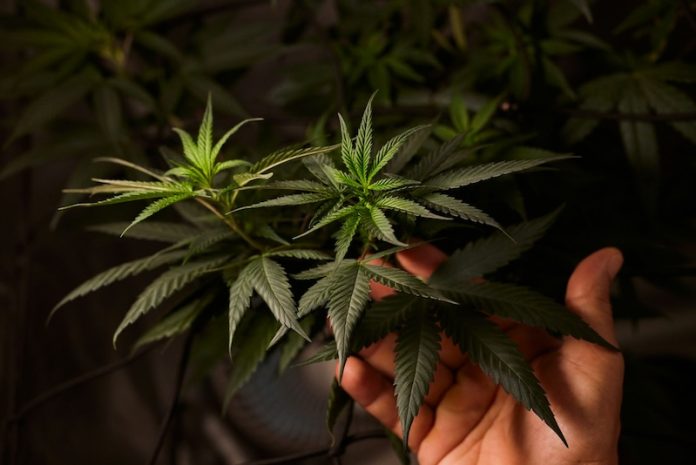
Researchers from the University of Rochester in New York have reported two tragic cases where men died after contracting severe fungal lung infections while growing their own marijuana.
The infections were caused by Histoplasma capsulatum, a fungus commonly found in bat droppings, also known as bat guano. The findings, published in Open Forum Infectious Diseases, highlight the risks of using bat guano as a fertilizer for marijuana cultivation.
As marijuana cultivation becomes more popular following legalization in various U.S. states, products like bat guano have gained attention among growers.
This fertilizer is praised for its high levels of phosphorus and nitrogen, which are believed to boost plant growth. However, this study emphasizes a critical health risk associated with its use.
The researchers documented two unrelated cases involving men aged 59 and 64. Both men had used bat guano to fertilize their marijuana gardens, but in different ways.
One man collected bat droppings from his attic, while the other purchased a commercial bag of bat guano online. Both unknowingly inhaled fungal spores from the fertilizer while tending to their plants.
Shortly after exposure, the men developed similar symptoms, including a persistent cough, fever, weight loss, and difficulty breathing.
Their conditions worsened, leading to respiratory failure caused by histoplasmosis, a type of pneumonia triggered by inhaling H. capsulatum spores. The fungus, once inside the lungs, transforms into yeast and can spread throughout the body via the bloodstream.
Although H. capsulatum infections are not uncommon in areas where bat feces are present, most healthy individuals can recover with antifungal treatment. Unfortunately, the two men in this study had underlying health conditions that made them more vulnerable.
Both were cigarette smokers, one had emphysema, and their age further weakened their ability to fight off the infection. Despite receiving medical care, neither survived.
The study serves as a stark warning to marijuana growers about the potential dangers of using bat guano. The researchers strongly advise against its use as a fertilizer, particularly for those who may be at higher risk of infection due to age, smoking, or pre-existing health issues.
While bat guano is widely marketed as an effective fertilizer, this case highlights the need for caution when handling such products.
Proper safety measures, such as wearing masks and gloves, can help reduce the risk of inhaling harmful fungal spores. However, avoiding bat guano altogether may be the safest approach, especially given the availability of alternative fertilizers.
This research underscores the importance of raising awareness about the hidden risks associated with marijuana cultivation and certain fertilizers.
While antifungal treatments are effective for many, individuals with compromised health may face life-threatening consequences. More education is needed to ensure that growers are informed about safer practices and potential hazards.
Although this study provides valuable insight, it has limitations. The findings are based on just two cases, and broader studies are needed to assess the prevalence of H. capsulatum infections among marijuana growers.
Additionally, more research is required to explore safe handling practices for potentially hazardous fertilizers. Despite these limitations, the warning is clear: using bat guano can pose serious health risks, and growers should exercise extreme caution.
If you care about smoking, please read studies about smoking may increase heart disease risk by 200% and e-cigarette smoke may cause lung cancer and bladder disease.
For more health information, please see recent studies about the cause of weight gain after smoking cessation, and results showing smoking may cause white scars on the brain.
The research findings can be found in Open Forum Infectious Diseases.
Copyright © 2025 Knowridge Science Report. All rights reserved.



